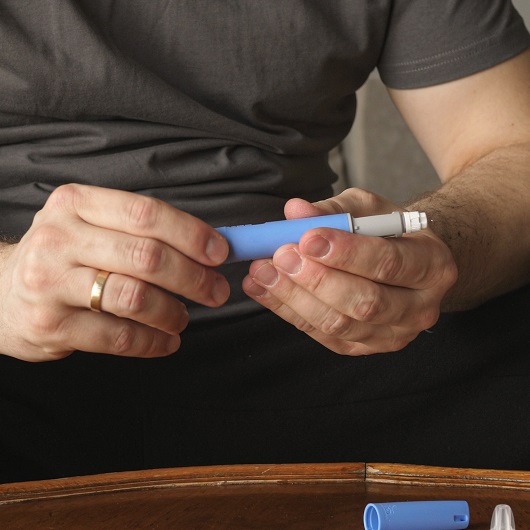Robotic Bariatric Surgery
If you or a loved one are morbidly obese and have been unsuccessful with non-invasive, traditional weight-loss techniques such as diet and exercise, you may feel trapped and at a loss of what to do. Often, people who are morbidly obese and suffering from a series of medical problems due to their weight need surgical weight-loss intervention. Robotic bariatric surgery may be the right option for you.
When bariatric surgery is done robotically, your surgeon will sit at a console and use robotic arms to control a camera. This allows your bariatric surgeon to gain a real-time, high-definition, magnified view of the surgical site. The operative tools attached to the mechanical arms provide the surgeon increased range of motion and dexterity.
Choosing robotic surgery with Hackensack Meridian Health, you will receive high-quality, compassionate care, setting you on the path to live a healthier and fuller life.
Benefits of Robotic Bariatric Surgery
Smaller Incisions
Due to the slender, precise tools used in robotic bariatric surgery, it can be performed through a smaller incision. This smaller opening means faster healing time and an improved post-op experience and outcomes, including:
- Decreased risk of bleeding
- Less discomfort in recovery
- Decreased risk of infection
- Shorter hospital stays
Less Risk
While no surgery is risk-free, robotic bariatric surgery provides for built-in safety mechanisms:
- Because the surgeon can remain seated and comfortable during the procedure, the risk of surgeon fatigue is reduced
- Robotic surgery eliminates the risk of hand tremors for the surgeon
- Surgeons can control everything all at once
Who Is A Candidate for Robotic Bariatric Surgery?
While robotic technology offers many benefits to both surgeons and patients, the technology doesn’t change the guidelines for those who qualify for weight-loss surgery.
However, robotic bariatric surgery is particularly effective for revisional operations—those who have had previous weight-loss surgeries and may need a follow-up operation.
If you answer “yes” to any of the following questions, robotic bariatric surgery may be right for you.
- Do you have a body mass index (BMI) of 40 or higher?
- Do you have a BMI of 35 or higher, in addition to a serious weight-related health condition?
- Does your weight limit your ability to participate in everyday activities at home and at work?
Expert Robotic Bariatric Surgeons In New Jersey
Find a robotic bariatric surgeon or surgery center nearby.
What to Expect with Robotic Bariatric Surgery
The preparation you will experience for a robotic bariatric surgery is no different than traditional weight-loss surgery. With robotic bariatric surgery, you may have a shorter hospital stay and experience less discomfort when compared to traditional surgery. You will see the results in the following months as you begin and continue to lose weight—improved by your commitment to exercise and nutrition.
It's important to remember that robotic bariatric surgery is a procedure to help you lose weight. You will not wake up with the weight gone. This weight-loss intervention is just the beginning of your journey to a healthier you.
Robotic Bariatric Surgery Expertise
While there are many well-trained weight-loss surgeons, special training is needed to perform robotic bariatric surgery. Our surgeons have been specially trained in robotic procedures and have been performing bariatric-specific procedures for many years. In fact, we offered one of the first programs in the country. This experience and knowledge enable us to provide the highest-quality care and best-possible outcomes.
Hackensack Meridian Health hospitals have been Bariatric Centers of Excellence for many years, with complication rates well below the national average. The complication rate at Jersey Shore University Medical Center is about less than half of the national average at only 0.5 percent, and we have a success rate of 70–80 percent.







